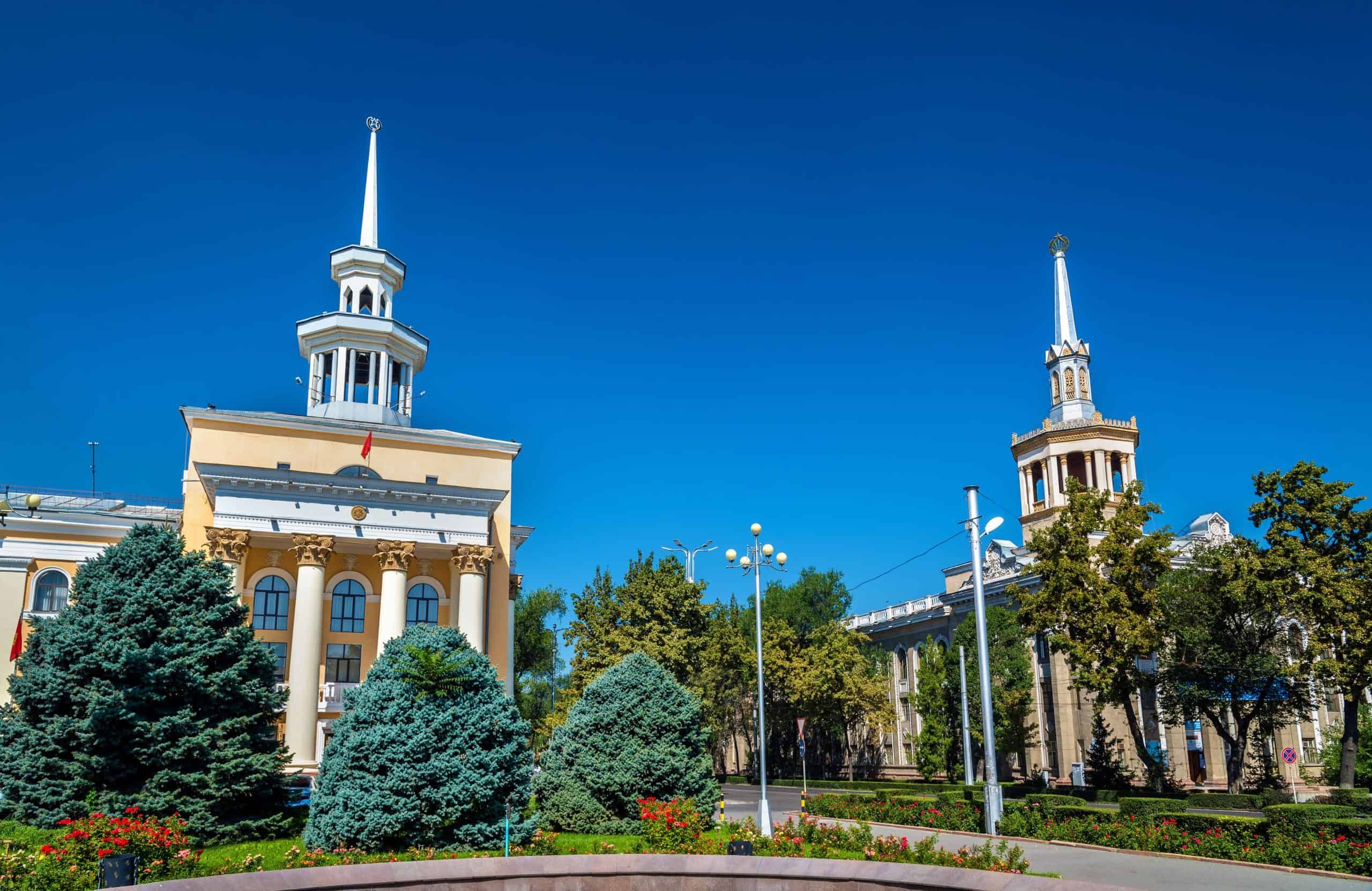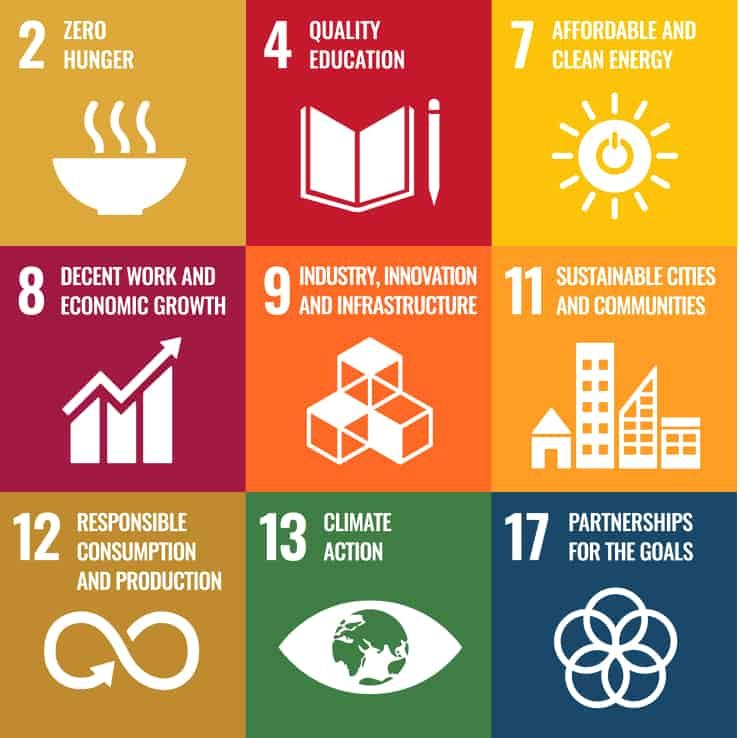Main Navigation
Kyrgyz Republic
Overview
The Kyrgyz Republic is committed to advancing inclusive sustainable growth, embedded into its long-term National Development Strategy 2040.
Landlocked, mountainous and rich in natural resources, the economy of the Kyrgyz Republic is mainly driven by agriculture (approx. 40 percent of employment), extractive industries, hydropower energy, service and construction sectors. Over time, this dependency on natural resources, however, has resulted in land degradation and desertification, posing threats to the population, environment and ultimately, the sustainability of the economy.
The long-term National Development Strategy 2040 outlines the country’s overall commitment to sustainable and inclusive growth, aiming for integrated policies that can balance the social, economic and environmental dimensions of development.
Landlocked, mountainous and rich in natural resources, the economy of the Kyrgyz Republic is mainly driven by agriculture (approx. 40 percent of employment), extractive industries, hydropower energy, service and construction sectors. Over time, this dependency on natural resources, however, has resulted in land degradation and desertification, posing threats to the population, environment and ultimately, the sustainability of the economy.
The long-term National Development Strategy 2040 outlines the country’s overall commitment to sustainable and inclusive growth, aiming for integrated policies that can balance the social, economic and environmental dimensions of development.
An accompanying five-year development programme – Unity, Trust and Creation (2018-2022) — accompanies the strategy, providing a medium-term framework for all national, sub-national and sectoral strategies and an additional Green Economy Programme (2019-2023) was created to focus on green energy, agriculture, industry, low carbon economy and environment, friendly transport, sustainable tourism, waste management and natural ecosystems sectors.
PAGE has been supporting the Kyrgyz Republic since 2016, namely assisting the government in its efforts to integrate Inclusive Green Economy (IGE) goals into national planning processes. With evidence-based analysis, PAGE is also working with the government on sectoral reforms in green industry, sustainable agriculture and jobs and strengthening institutional capacities around IGE diagnostics, coordination, finance and public procurement.
Sustainable Development
PAGE work in the Kyrgyz Republic supports progress towards achieving SDGs 2 (Sustainable Agriculture) 4 (Quality Education), 7 (Affordable and Clean Energy), 8 (Decent Work and Economic Growth), 9 (Industry, Innovation and Infrastructure), 11 (Sustainable Cities and Commodities), 12 (Responsible Consumption and Production), 13 (Climate Action) and 17 (Partnerships for the Goals), as well as implementation of the Paris Agreement, which the country ratified in November 2019.
COVID-19 and Green Recovery
The COVID-19 pandemic and a political crisis in October significantly affected the economy of Kyrgyzstan. Losses have been seen in major economic sectors, such as tourism, trade and consumer services, and construction — the economy is expected to contract by approximately 10 percent, with an unemployment rate reaching 21 percent. Despite additional political challenges following disputed election results and a changeover in administration in October 2020, the Kyrgyz Republic submitted a proposal for additional PAGE support in November 2020.
Within this additional work, PAGE will support the Kyrgyz Republic on creating a policy enabling environment for enhancing the sustainability and growth of Micro, Small and Medium Enterprises (MSMEs) as a key avenue for a green recovery. Policy scenario analyses will draw policy recommendations for promoting employment, improving job quality, and stimulating MSME development. Policy recommendations will aim to increase coherence between employment, social, economic and environmental policies. Additionally, the work will include the establishment of the National Green Investment and Credit Fund – envisaged under the Green Economy Development Program of Kyrgyz Republic and adopted in 2020 by the government with the support of PAGE — in an effort to mobilize public and private finance for greening the economic recovery. The development and implementation of a communication strategy will aim to inform the wider public and strengthen collective ownership of green solutions.
PAGE Milestones
- 2016
Kyrgyz Republic joins PAGE
- 2017
Inception mission held to develop a common understanding of green economy concepts
Green Economy Stocktaking Report developed
Study mission to Mongolia provided Kyrgyz counterparts with a working concept for advancing green economy
Green Economy Forum held under the theme “From Theory to Practice – Possibilities for Business”
National IGE expert group established
- 2018
Kyrgyz Parliament adopted the “Concept of Kyrgyzstan as a Green Economy Country”
Green Economy Learning Needs Assessment developed
Skills for Green Jobs Assessment finalised and launched
Green Industry and Trade Assessment (GITA) conducted
South-South exchange between the Kyrgyz Republic and Mongolia highlighted as best practice by the UN Office for South-South Cooperation
National Development Strategy 2018-2040 and accompanying five-year programme Unity, Trust and Creation adopted
- 2019
Decree “On the Foreign Policy Concept for the Kyrgyz Republic” signed by the President of the Kyrgyz Republic
Green Economy Week held under the theme “Strong Regions”
National Green Economy Programme approved
President of the Kyrgyz Republic signed a law ratifying the Paris Agreement on Climate Change
- 2020
Coordination Commission on Green Economy and Climate Change formed
25 green economy modelling training sessions held virtually
Report on ‘Investment opportunities for the development of a green economy in Kyrgyzstan’ released
Green Economy Development Programme enacted
Eco-competition on solid waste management in Bishkek launched by UNDP
Progress in 2020: A Snapshot
National mechanisms
In January 2020, the Kyrgyz government established a Coordination Commission on Green Economy and Climate Change with PAGE support. […]
In January 2020, the Kyrgyz government established a Coordination Commission on Green Economy and Climate Change with PAGE support. This Commission will, among other things, coordinate the action of the state executive authorities, local governments, non-profit and international organizations to support implementation of the Green Economy Development Programme.
Green Economy modelling
Continuing to evolve work started in 2018, PAGE provided technical support and further capacity development within the government in 2020 […]
Continuing to evolve work started in 2018, PAGE provided technical support and further capacity development within the government in 2020 for the ongoing IGE modelling work. The macroeconomic model offers analysis of various development scenarios, allowing the government to determine the best option. Meaning, development decisions can be well-informed to meet needs and priorities of Kyrgyzstan, accounting for current conditions and opportunities.
The model also supports the development of a green development strategy in identifying the positive and negative impacts of planned policy measures and their contribution to a green economy transition, the model underpins the advancing green development strategy.
Policy reforms for a green economy
The Green Economy Development Programme for the Development of Green Economy was officially adopted by the Prime Minister’s Office […]
The Green Economy Development Programme for the Development of Green Economy was officially adopted by the Prime Minister’s Office in July 2020. The programme was developed jointly between PAGE and the UNDP Biodiversity Finance Initiative (BIOFIN) and determines the strategy and action plan for integrating green economy approaches into the national economy by 2023. The main priority areas include:
- Stable Natural Ecosystems
- Green Energy
- Green Agriculture
- Green Manufacturing Industry
- Low-Carbon and Ecologically Clean Transport
- Sustainable Tourism
- Municipal Waste Management
- Green Cities
- Areas to support the inclusive green economy transition process
Driving sustainable finance
In 2018, PAGE supported the development of a Sustainable Finance Roadmap, which was incorporated into the recently adopted Green […]
In 2018, PAGE supported the development of a Sustainable Finance Roadmap, which was incorporated into the recently adopted Green Economy Development Programme. In 2020, PAGE began assisting in the implementation of this Roadmap: namely, providing expertise to identify private sector needs and analyzing existing legislative frameworks relevant to sustainable finance. From this analysis, PAGE will help develop recommendations to implement sustainable finance in collaboration with the International Finance Corporation (IFC).
PAGE released a report in May 2020 on ‘Investment opportunities for the development of a green economy in Kyrgyzstan’, noting opportunities for green investments in Kyrgyzstan and providing related recommendations.
Waste management
As the population increases, solid waste management is of high priority in Kyrgyzstan’s capital city, Bishkek. To address this issue, PAGE […]
As the population increases, solid waste management is of high priority in Kyrgyzstan’s capital city, Bishkek. To address this issue, PAGE began work to implement recommendations from the waste chapter of the country’s Green Economy Development Programme in 2020.
PAGE is developing a draft Government Decree on Economic Mechanisms in the field of waste management and preparing two amendments to the Laws on non-tax payments and the production and consumption of wastes.
In July 2020, PAGE launched an eco-competition on solid waste management in Bishkek with the aim to develop innovative, diverse and effective ideas, calling for applications from innovators, representatives of the private sector and civil society. Solutions were sought on waste reduction, public awareness, recycling and reuse of materials, as well as the use of new technologies in existing or new enterprises related to processing of recycled materials.
Four projects were selected out of 28 and received funding to implement their ideas — including a project mapping recycling and solid waste collection points; a new design of ecological waste bins for separate collection of plastic; the creation of a short documentary highlighting best community practices in waste management; and an initiative on composting organic waste. Three projects were in implementation at the end of 2020.
Additionally, in response to an official request from the Ministry of Health of the Kyrgyz Republic, UNIDO, under PAGE, commissioned a situation analysis of the healthcare waste management systems in the Kyrgyz Republic in July 2020. The draft assessment, completed in December 2020, identifies the nature and volume of medical waste generated in the context of COVID-19, and identifies gaps in related policies and legislation, and recommends how the country may respond to the crises.
Foundations for green jobs
In 2020, work continued on a Green Jobs Assessment Model (GJAM), to analyze the impact of green policies on the labour market and household […]
In 2020, work continued on a Green Jobs Assessment Model (GJAM), to analyze the impact of green policies on the labour market and household income distribution. PAGE provided support to the National Statistical Committee (NSC) to improve its statistical system — for example, through working sessions with an international expert on the System of Economic-Ecological Accounting (SEEA) as well as the training of local experts with courses in November 2020: one on ‘measuring informal employment’ and one on the methodology for GJAM.
Other activities include capacity-building as well as data collection on Environmental Goods and Services Sectors (EGSS) and job statistics (including in waste management activities), and support to the GJAM working group to inform the model development.
Training for green economy modelling
In 2020, PAGE supported the Ministry of Economy in conducting 25 consecutive online training sessions on building a green economy model. Targeting […]
In 2020, PAGE supported the Ministry of Economy in conducting 25 consecutive online training sessions on building a green economy model. Targeting representatives from ministries and departments, the National Bank, academic institutions and the expert community, the trainings have been attended by 292 participants since April 2020. This marks an important step to institutionalize the green economy model. In addition, together with GIZ, two training courses are under development: one for decision-makers and one for technical staff engaged in IGE modelling.
Building institutional capacity
PAGE has developed an agreement with the University Alliance for Green Economy and Sustainable Development (AVZUR), led by the […]
PAGE has developed an agreement with the University Alliance for Green Economy and Sustainable Development (AVZUR), led by the American University of Central Asia (AUCA), to integrate green economy learning into the curricula of various university degrees. To build capacity of future decision-makers, the following courses were identified in 2020: Economics of climate change in Central Asia (OSCE Academy); Green and sustainable finance (International Alatoo University); Agriculture and green growth (Kyrgyz National Agrarian University); Green economy and international trade (AUCA); and Introduction to green economy (Kyrgyz Economic University).
Additionally, with AVZUR, UNITAR conducted a competition among youth to create projects that highlights and raises awareness of issues of a green economy in the Kyrgyz Republic. Winning projects are being implemented from October 2020 to March 2021.
Training for green jobs modelling
To further the Green Job Assessment Modelling (GJAM), PAGE provided training on its methodology to university faculty and staff from […]
To further the Green Job Assessment Modelling (GJAM), PAGE provided training on its methodology to university faculty and staff from government agencies. A three-week online training session and training package in Russian was held in November 2020 to 34 participants (including 27 women) from various national institutions, including banks and universities. The sessions focused on tools with policy applications in the area of economic, environmental and social impact analysis and planning.
Training on environmental accounting and labour statistics
To assist in developing national environmental statics, an international expert on the System of Economic-Ecological Accounting (SEEA) […]
To assist in developing national environmental statics, an international expert on the System of Economic-Ecological Accounting (SEEA), held training sessions for NSC staff, experts from trade unions, employers as well as representatives from the Ministry of Labour and Social Development and the Ministry of Economy.
The training course ‘Measuring informal employment’ covered concepts and practical applications on informal employment to support the NSC to improve labour market statistics, a high priority on the policy agenda and an important dimension for the future of green jobs and sustainable development. The sessions were held between 9 November to 18 December and had 10 participants (including eight women) from Kyrgyzstan.
PAGE Impact: 2016-2020 and Beyond
Follow along for updates from the AVZUR & UNITAR green economy awareness campaign
#PAGE #ЮНИТАР #АВЗУР
View this post on Instagram




